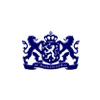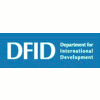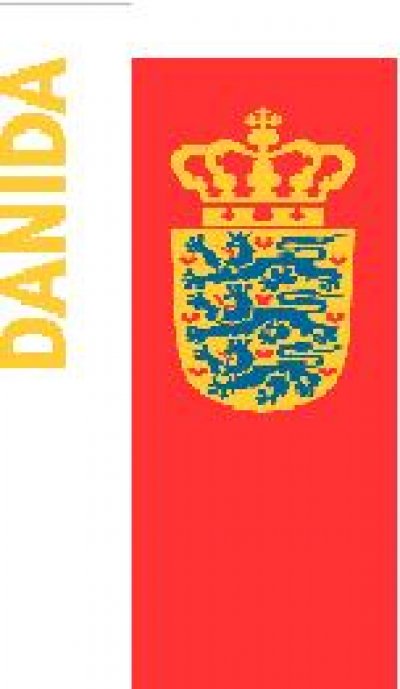The Embassy of the Kingdom of the Netherlands in Bosnia and Herzegovina, the Swedish International Development Agency (Sida), the United Kingdom Department for International Development (DfID) and the Delegation of the European Commission in BiH have created the common donor Fund for the public administration reform in BiH. Additional technical assistance is provided by the European Commission for the purpose of strengthening the capacities of the Office and providing support in drafting projects financed by the fund.
The Embassy of the Kingdom of the Netherlands in BiH
 Bosnia and Herzegovina is one of 36 partner countries from around the world with which the Netherlands has a programme of development and cooperation. After focusing on predominantly the aid for minority returnees and creation of stability after the war, the programme has been oriented towards creation of sustainable, transparent and accountable structures of government, in accordance with the criteria stipulated by the process of association with the EU, and development of business environment attractive to the foreign investors. The Dutch Embassy is active in the sphere of the Public Administration Reform both on the central and on the local level.
Bosnia and Herzegovina is one of 36 partner countries from around the world with which the Netherlands has a programme of development and cooperation. After focusing on predominantly the aid for minority returnees and creation of stability after the war, the programme has been oriented towards creation of sustainable, transparent and accountable structures of government, in accordance with the criteria stipulated by the process of association with the EU, and development of business environment attractive to the foreign investors. The Dutch Embassy is active in the sphere of the Public Administration Reform both on the central and on the local level.
Swedish International Development Agency (Sida)
 The SIDA is a government agency within the Ministry of Foreign Affairs of Sweden, whose goal is contribution to improvement of lives of the poor. The Sida works independently within the framework placed by the Swedish Parliament and the Government. They decide on the budgets, countries with which Sweden and the Sida will cooperate, as well as the focus of Sweden in international development cooperation. The Sida helps also the strengthening of the public organisations and the government services in countries in which it implements programmes, by creating partnership with the corresponding bodies in Sweden.
The SIDA is a government agency within the Ministry of Foreign Affairs of Sweden, whose goal is contribution to improvement of lives of the poor. The Sida works independently within the framework placed by the Swedish Parliament and the Government. They decide on the budgets, countries with which Sweden and the Sida will cooperate, as well as the focus of Sweden in international development cooperation. The Sida helps also the strengthening of the public organisations and the government services in countries in which it implements programmes, by creating partnership with the corresponding bodies in Sweden.
The United Kingdom Department for International Development (DfID)
 Department for International Development (DfID) is a department of the Government of the United Kingdom, responsible for inciting development and reduction of poverty. The DfID manages and coordinates the whole development assistance of the British Government in BiH. The key priorities of the assistance are: creation of the sustainable private sector; enlargement of the capacities for trade and stimulation of direct investments; establishment of effective, accountable Government; implementation of effective social policies; improvement of approach to quality health care; improvement of the access to judiciary and development of impartial media.
Department for International Development (DfID) is a department of the Government of the United Kingdom, responsible for inciting development and reduction of poverty. The DfID manages and coordinates the whole development assistance of the British Government in BiH. The key priorities of the assistance are: creation of the sustainable private sector; enlargement of the capacities for trade and stimulation of direct investments; establishment of effective, accountable Government; implementation of effective social policies; improvement of approach to quality health care; improvement of the access to judiciary and development of impartial media.
Delegation of the European Commission in BiH
 The Public Administration Reform is one of sixteen priorities from the Feasibility Study and one of six key priorities of the European Partnership. The EU provides assistance to BiH in Public Administration Reform by strengthening its systems and by capacity building of the key sectors. The EU supported the Public Administration Reform Coordinator’s Office when it comes to design and implementation of the Strategy and the Action Plan 1 for the public administration reform. The overall amount of the CARDS Programme in the period from 2001 to 2006, spent on public administration capacity building and its reform, is 40 million euro.
The Public Administration Reform is one of sixteen priorities from the Feasibility Study and one of six key priorities of the European Partnership. The EU provides assistance to BiH in Public Administration Reform by strengthening its systems and by capacity building of the key sectors. The EU supported the Public Administration Reform Coordinator’s Office when it comes to design and implementation of the Strategy and the Action Plan 1 for the public administration reform. The overall amount of the CARDS Programme in the period from 2001 to 2006, spent on public administration capacity building and its reform, is 40 million euro.
Ministry of Foreign Affairs of the Kingdom of Denmark
 The Neighbourhood Programme is Denmark’s bilateral development programme for EU’s neighbouring countries to the east and southeast. The overall objective of the Neighbourhood Programme is to promote human rights, democracy and economic development.The aim of the Neighbourhood Programme 2013-17 is to contribute to a peaceful and stable Europe with freedom and progress through development of democratic societies with accountable authorities, vibrant civil societies, well-functioning markets and conflict resolution mechanisms across the continent. The Neighbourhood Programme applies a human rights-based approach underpinning efforts to realise social, cultural, economic, political and civil rights.
The Neighbourhood Programme is Denmark’s bilateral development programme for EU’s neighbouring countries to the east and southeast. The overall objective of the Neighbourhood Programme is to promote human rights, democracy and economic development.The aim of the Neighbourhood Programme 2013-17 is to contribute to a peaceful and stable Europe with freedom and progress through development of democratic societies with accountable authorities, vibrant civil societies, well-functioning markets and conflict resolution mechanisms across the continent. The Neighbourhood Programme applies a human rights-based approach underpinning efforts to realise social, cultural, economic, political and civil rights.
